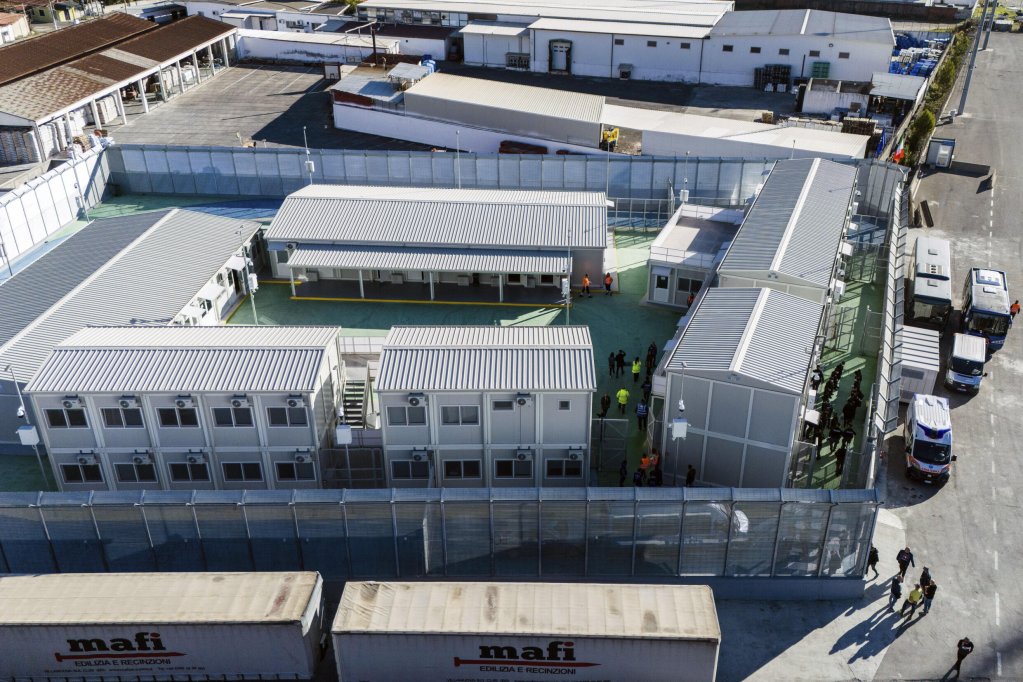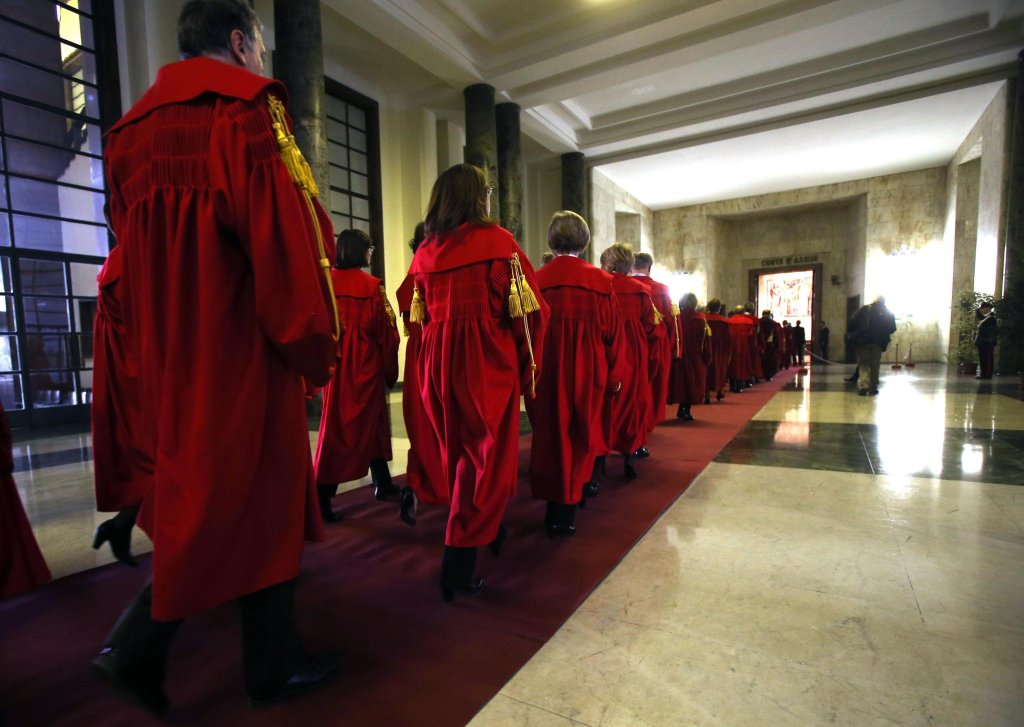The Italian government is reportedly withdrawing most of its staff from the Albanian migrant centers after less than two months of operation.
On Saturday (November 23), multiple Italian news outlets, including Rome’s left-leaning La Repubblica and the news agency ANSA, reported that most or all of the Italian staff employed by Medihospes, the company managing operations at Albanian asylum processing centers, would be leaving at the weekend.
Just seven of the company’s employees are due to remain, reported the German press agency dpa. They will stay along with some local-hire Albanian employees and an undisclosed number of Italian police officers.
The Italian government confirmed that the camps would remain "open and operational," despite the reduction of staff, reported ANSA.
The return of almost all staff is reportedly partly because the government is waiting for a hearing in Italy’s highest appeal court, the Cassazione, due on December 4.
The court is expected to decide whether judges can use their discretion when judging whether a country can be considered safe for repatriation or not, or whether they need to just follow the government’s list, updated by decree in October, which declares certain countries entirely safe.
Read AlsoItalian appeals courts 'to be brought to knees' by migrant cases

Albanian operations
It was not reported exactly how many staff were employed in Albania by Medihospes Albania, or how many of those are Italian, but a notice on their website advertised at least 387 positions in Italian and Albanian. These ranged between "welcome staff", administrators, IT specialists, social workers, psychologists of various sorts, a psychiatrist with a medical qualification, legal information officers, linguistic and cultural mediators, drivers, cleaners, doctors, nurses and other health professionals, radiologists, radiographers, orthopedic specialists and surgeons.
According to the company’s Italian website, Medihospes is a cooperative that employs more than 1,500 staff and helps "more than 7,500 people per day." The company works in various sectors, including helping those who are "socially fragile or live in medically or humanitarian unstable situations."
A branch of the company, Medihospes Albania Srl. (a limited company) was created earlier this year to work in the Albanian centers, reported the Italian investigative magazine Altreconomia. According to documents from Albania’s Chamber of Commerce, seen by Altreconomia, this branch of the company was meant to manage "all the services related to the function of the centers in both Shengjin and Gjader."
The company reportedly received around 133 million euros over two years for its management services. This fee was agreed at the beginning of March by the Rome prefecture, which comes under the jurisdiction of the Italian Interior Ministry, reported Altreconomia.
Read Also
NGOs say Italy-Albania deal 'violates code of medical ethics and human rights'

Failed attempts to process migrants in Albania
The reduction of staff in Albania comes after the Italian government twice failed to actually process any migrants via the Albanian centers. In both cases, the small groups of migrants who were transported to Albania, in October and November, were ordered to be returned to Italy by Italian migration courts.
The Italian government attempted to circumvent the courts' first objections by issuing a decree declaring certain countries, including Egypt and Bangladesh, entirely safe. However, their attempt did not work, and when the second group of Egyptian and Bangladeshi migrants were taken to Albania, the Rome court referred its earlier decision to the European Court of Justice for a final decision about whether a country can be declared entirely safe, even when perhaps parts of it may remain dangerous, or some groups might face discrimination in that country.
The Italian government has appealed the Rome court’s decision, but the legal process for that appeal to be heard could take months, if not years. The European Court hearings could also take some time, meaning that currently, it is difficult for Italy to send migrants to Albania, because they must receive the go ahead for their detention from the court within 48-hours of their arrival, otherwise their detention would be considered unlawful, and they must be returned to Italy.
Government attempts to change court responsible for hearings
Last week, Italy’s right-wing government attempted to pass rules to change the courts responsible for validating the detention of migrants, reported the news agency Reuters.
The proposal, approved by a parliamentary committee late on Wednesday (November 20), decreed that future rulings on migrant detentions would no longer be heard at Rome’s migration tribunal, as is the case now, but would pass to regular appeal courts.
However, the plan still needs to be approved by parliament, and judges and opposition figures complain that it would take even longer to hear anyone’s case, because of the backlog of appeals in Italy’s judicial system.

The opposition Democratic Party (PD), told Reuters, "it is a clear [act of] revenge against those who…refused to bend to requests that violate the principles of law."
The government responded, saying the shift was merely to "promote efficiency," while transferring to a higher court an issue related to human rights.
Read AlsoIs Italy's model for offshoring migrants doomed to fail?
'An enormous waste of public funds'
Opposition MP Riccardo Magi, from the +Europa party, posted a comment on social media. "Mission accomplished!" he began. "The [Italian] government has succeeded in its repatriations. Of migrants? No, of the Italian staff sent to Albania. By the end of this weekend, they will all return home," reported ANSA.
Magi added that it was "an enormous waste of public funds," and called the whole process, with the various judgements, the empty centers and no the return of most of the staff, “an epochal failure,” adding that he thought that was “lucky.”
Magi continued, reported ANSA, "Since the Albanian centers were opened, 6,000 people have disembarked in Italy. If the Italian judges had not applied the law, there would be today 18 migrants being processed in the Albanian centers. Giorgia Meloni is taking Italians for a ride, and making each one of us pay for her 'very salty propaganda'." Magi claimed the costs would amount to a billion euros.
The opposition politician called on the Italian government to stop this "pantomime" and apologize to the Italian people.
With dpa, Reuters and ANSA
